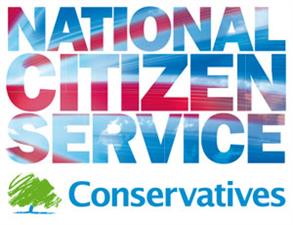 The history of the fuel-duty escalator in the UK was a chequered one. Rather than energy policy being determined in the public good, and with respect for the planet, it became an area of political in-fighting and corporate bullying. The fuel protests of 2000 frightened politicians away from a responsible policy of a steadily increasing fuel price.
The history of the fuel-duty escalator in the UK was a chequered one. Rather than energy policy being determined in the public good, and with respect for the planet, it became an area of political in-fighting and corporate bullying. The fuel protests of 2000 frightened politicians away from a responsible policy of a steadily increasing fuel price.But perhaps we could go one better. Perhaps we could set an upward trend in fuel prices that would not only send a clear signal to markets that carbon-based energy would only get more expensive, but also support them by ensuring a consistent upward trend, removing the volatility that increases business costs by making long-term planning so difficult.
Price volatility presents a major hurdle to the business and public-sector investment in renewable sources of energy that can serve as an alternative to oil, as well as a hurdle to investment in efficiency measures, conservation, and the general re-ordering of our society to be less energy intensive. A stable oil price across the UK would be a huge support to business. The idea of the policy would be that the government would relate fuel tax inversely to fuel prices, so that it would suffer the volatility rather than business and customers, who would none the less face a steady upward trend in price.
The Conservative government introduced a ‘fuel price escalator’ in 1993, ensuring that the annual increase in fuel duty would be initially 3% and later 5% greater than inflation. This was explicitly intended to help the UK achieve its Kyoto targets. According to the UK Treasury in 2000, ‘The road fuel escalator was a major success in helping the UK to meet its Kyoto commitments. It is estimated that the increases between 1996 and 1999 will have saved 1 to 2.5 million tonnes of carbon by 2010.’
By 2000, the UK had the most expensive fuel in Europe, with fuel tax representing over three-quarters of the price paid at the pump. These relatively high prices led to protests by truckers, including the blockading of key oil facilities and food shortages, which caused the government to announce the end of the escalator in November 2000.
Fuel duty contributes around £18bn. annually to the UK Treasury; it is collected nationally and is not hypothecated. UK consumers pay an additional sales tax (VAT) on fuel, currently at a rate of 17.5%. A specific form of ‘red’ diesel used by those in agricultural and construction sectors has a much lower rate of tax and aviation fuel is not taxes.
In 2008, the UK Chancellor announced that he would postpone the increase of 2p per litre in fuel duty, to support businesses who were struggling with the combination of increases in oil prices and the credit squeeze. However, this policy has not been changed as oil prices have fallen, indicating that the UK government’s approach to fuel duty is still short-termist and essential political, with no seeming motivation towards encouraging the move towards a low-carbon economy in the long term.
The proposal suggest a simple policy with a simple goal: to set a clear upward trajectory for the price of the major input to most industrial companies—that of their fuel. This would support investment in the transition to a low-carbon economy and remove much of the uncertainty that the Stern Review found was prohibiting such investment.
What are the political implications for such a tax proposal? Although any suggestion that fuel prices might increase is likely to be greeted with horror by the corporate oil lobby, it could be demonstrated to be to the benefit of ‘business’ who appear to be the main political constituency these days. As a proposal which is actually a pro-environment measure, but can be framed as a pro-business measure, it could be very attractive to a party wishing to brush up its green credentials without threatening the business lobby. The proposal would also help to level the playing-field between the large corporate players in the economy, who can hedge the cost of their fuel, and the smaller players who suffer most from price volatility.
Of course a government that can introduce such a measure can also abolish it, and the impact on individuals might be unpopular, particularly if there were no parallel measures to protect the more vulnerable against fuel poverty. However, making a clear commitment to removing fuel price volatility could be a virtuous spiral—initially it would give businesses and individuals an incentive to invest in low-carbon developments, but once they had, they would then have bought in to the measure and would be less likely to lobby for its repeal.
What the breakdown of international negotiations over CO2 reductions has made clear is the difficulty of agreeing a policy to deal with this most important issue. The danger for the countries who industrialised first—such as the US and UK—is that they have become so dependent on fossil fuels that they are finding it difficult to adapt. The most powerful argument in favour of making the changes that human survival requires—especially at the corporate level—is that failing to do so will rapidly undermine the power of business in this new century, which will be the century when fossil fuels cease to drive our economies. Thus a policy which encourages the fossil-addicted businesses in those countries to invest in the new future, by removing oil price volatility, could make high-taxing strong central government the true friend of the corporate sector.
. Tweet



